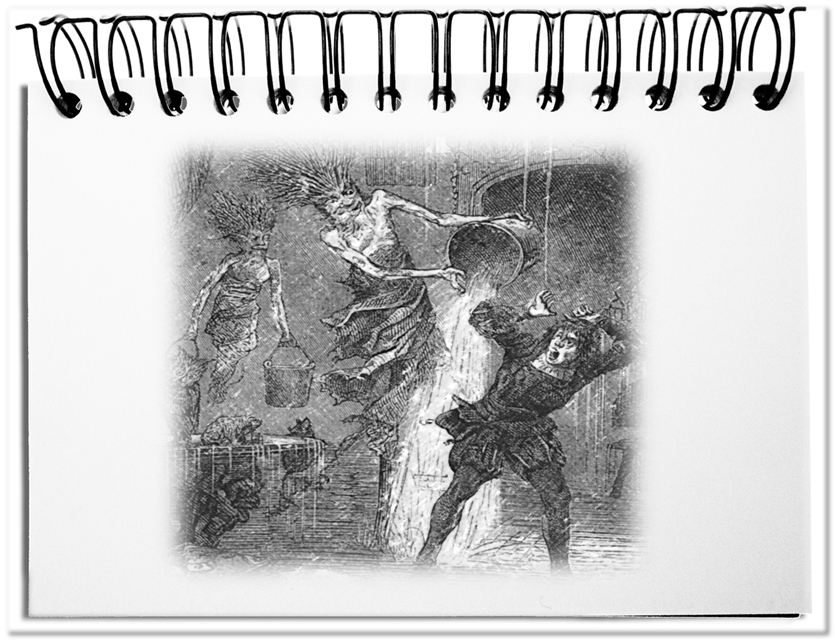Even if you fasten your seat belt, close the door and place a group of doorwomen in front of the office, as a manager you cannot hide from the demands of the VUCA world. The speed at which you have to react and the amount of skills required no longer allow us to rely on the rigid frameworks of the past. If even the American military sets up its troops with a new managing style, it should become clear to the last one that the time has come for new leadership styles. Since the solution is different for everyone, we have to design our own approach. At the same time, we run the risk of becoming sorcerer’s apprentices and being overrun by the released forces. – Spirits that I’ve cited, my commands ignore.
There are three aspects that tear you apart as a leader and give rise to the fear that you will lose control forever, once you have opened the floodgates.
- New concepts
What does it take to let go and engage in spontaneous improvisations that lead to a convincing result done by the self-organized participants? So far, everyone’s commitment has been crushed by distributing tasks, competence and responsibility on different shoulders. The greatest effect is achieved when everything is in one hand and the group takes responsibility for the result. People do not only spare the unproductive time of detailed planning, the slowing down of colleagues due to excessive control or the relief that is created by assigning blame to others. Those who do not drive these changes forward will be driven by the changes – now, or perhaps not before tomorrow. - Different leadership styles
The troops stand no longer in line and follow orders. They have their own ideas and conceptions which they want to implement. The competition stops taking place between the own team mates but with other groups. In the future the individual destiny will depend on the fate of the whole team. This means for the manager that the organization is no longer developed by designing the positions and regularly control the behavior of the employees. The boss is now a coach, fostering his employees as an available contact person and solving the insolvable issues. The group is promoted as a whole, learns together and shares the joy and sorrow of the outcomes. If you don’t get involved, you lose the loyalty of your employees and thus your purpose as a manager. - Value-based governance
In the past nothing functioned without governance and in groups it will never work without it. The personal commitment is the main reason for the willingness of the employees to get involved. The laws, standards and guidelines are the regulations that you HAVE to follow – otherwise you will receive more or less defined sanctions. In the end, this leads to doing things right – especially in the economic sense. This type of governance is exacerbated by filtered information, whose credo is shaped by „knowledge is power“ – it is not entirely wrong to either speak of censorship. The new approach focuses on doing the right thing out of inner conviction. The fuel is not the fear of punishment, but the intrinsic commitment to your task. This requires information distributors, who keep the involved people up to date. Those who cannot apply this value-based management are crushed by the old rules and eventually become obsolete.
This does not mean that doors and ways are opened to anarchy. It is about giving the team, and thus each individual employee, the freedom to achieve more with the existing strengths, instead of exhausting oneself with senseless and futile (self-) limitations.
Bottom line: The master of these magical powers is not the sorcerer’s apprentice, but the master. The loss of control of the trainee comes from the fact that he did not practice enough yet. That is why he formulates a bit early:
Bubble! Bubble!
Some route,
that, for the purpose,
water flows
and with a rich, full flood
to pour to the bath.
Johann Wolfgang von Goethe, The Sorcerer’s Apprentice
without having the capability to reverse the command. One or the other can certainly imagine the helplessness of the sorcerer’s apprentice. All concerned people are still integrated into the old structures. At the same time, many recognize the opportunities, but do not want to get into the situation of the sorcerer’s apprentice. For this reason, you should pro-actively take care of the new approaches of agility. In delimited special operation zones, which are exempt from the old rules, these new concepts, different management styles and value-based governance can be practiced by everybody. The Agilemma will slowly dissolve that way and the spirits that one has cited, you no longer want to get rid of, but to use it in growing circles.

